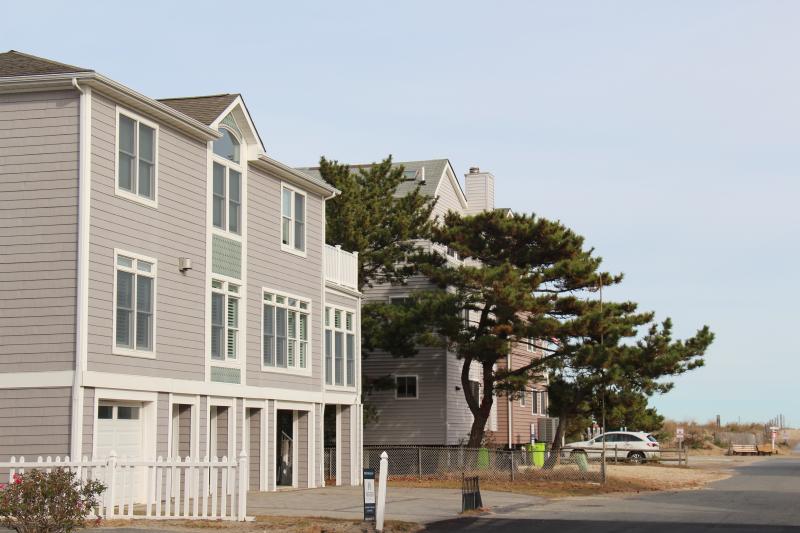Dewey Beach officials hope to clarify and amend rules for property owners who want to elevate buildings to protect from flooding.
Town commissioners voted unanimously Nov. 15, to ask the town’s charter and code review committee to review two related proposals.
One would allow an additional foot of freeboard with a corresponding 1-foot increase in the height of a building, which would provide an additional, voluntary measure of flood protection.
Freeboard originated as a nautical term for the distance between the waterline and the main deck of a vessel. In the context of building construction, it is the distance of a structure’s first floor above the base flood elevation.
The other request would have the committee review requirements related to elevating properties in a flood zone, in an effort to clarify the rules and resolve discrepancies in the wording of town laws.
Commissioner Gary Persinger noted at a Nov. 15 meeting that at the previous meeting, the board had approved increasing the freeboard requirement from 1 foot to 2 feet for new construction or extensive renovations. The board in October considered an increase to 3 feet, but chose the lower figure with the understanding that it could be raised later, if necessary.
Persinger said based on issues raised at the October meeting, he drafted the proposal to allow 1 additional foot of freeboard as well as the request that the charter and code review committee study and recommend changes to town laws.
Commissioner David Jasinski had recommended the higher 3-foot standard for freeboard at the October meeting.
Allowing a third foot of freeboard would provide an additional level of flood protection, Persinger said.
“It would be completely voluntary,” he said. “It, in some sense, would be an encouragement to have people go that additional foot … and take advantage of some reduced flood insurance premiums because of that.”
Jasinski said there is a 32-foot building envelope, and the change that will be reviewed by the committee would elevate by 1 foot the window in which construction can occur.
A review of town codes related to building construction and renovation related to flood issues was undertaken five or six years ago by Persinger and then-Commissioner Courtney Riordan, but no changes were pursued at that point, Persinger said.
“It was a pretty tough slog through the code,” he said. “There is some confusing language in the provisions. Some of the discussion we had at the last meeting is a good example of that.”
Board members believed buildings that significantly encroach on setbacks could not be extensively renovated or elevated, he said. Some sections of law allow work, while others suggest there are restrictions.
There are also references in the laws to a town-wide 35-foot height limit for buildings that was rescinded years ago.
“I think what’s important is that we should sit down and try to figure out what it is we would like to be able to do, what we think property owners should be able to do voluntarily and what they are required to do,” Persinger said.
The board also agreed Nov. 15 to ask the climate change committee – which was scheduled to meet the following morning but had to cancel due to lack of a quorum – to conduct the broad review of the town laws that the charter and code review committee was asked to consider.
“The time to have this figured out is before you have a major storm event,” Jasinski said.
He noted that in several southwest Florida communities, angry groups of residents have confronted local officials because zoning codes are making it difficult to rebuild after flooding caused by storms.


















































